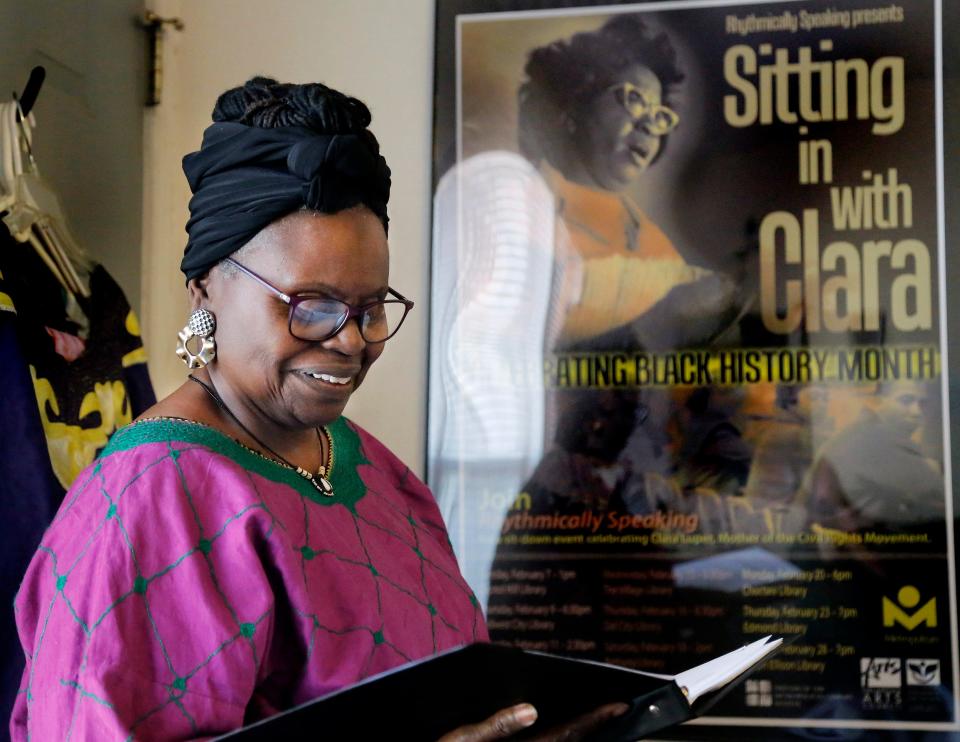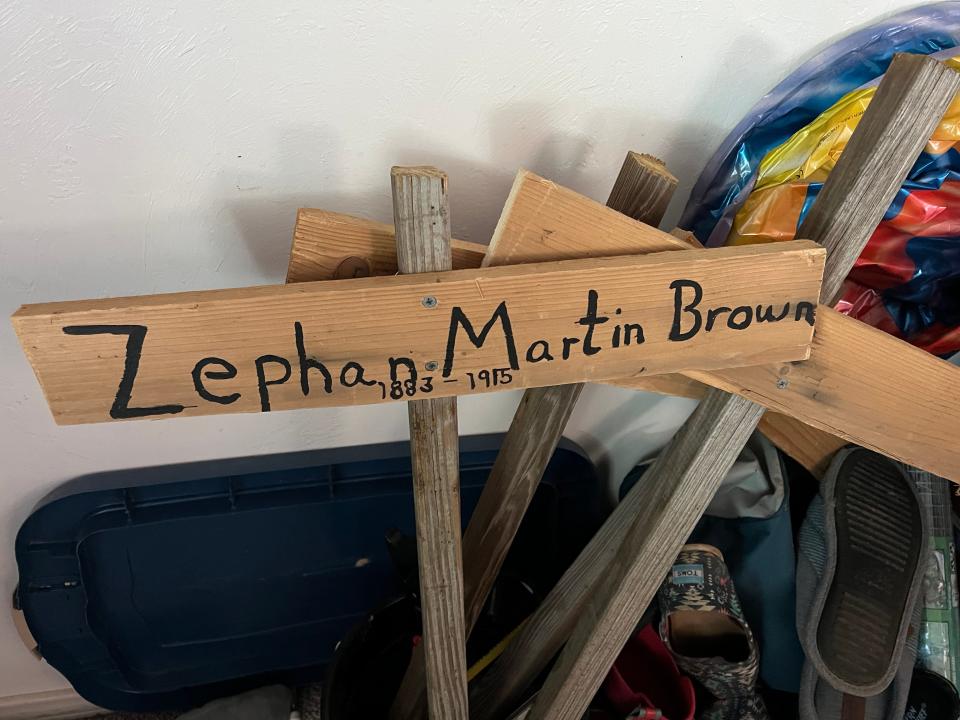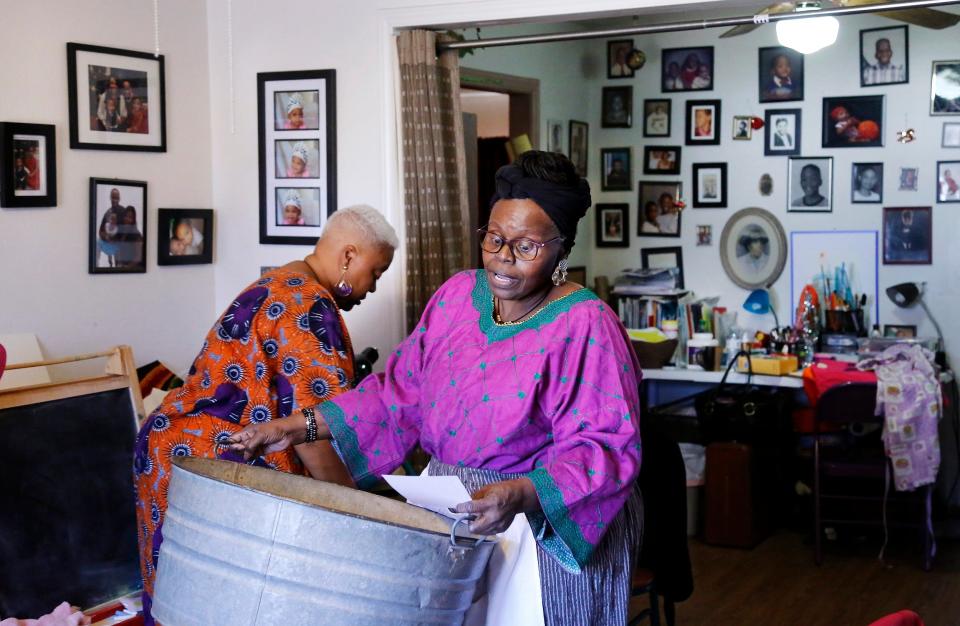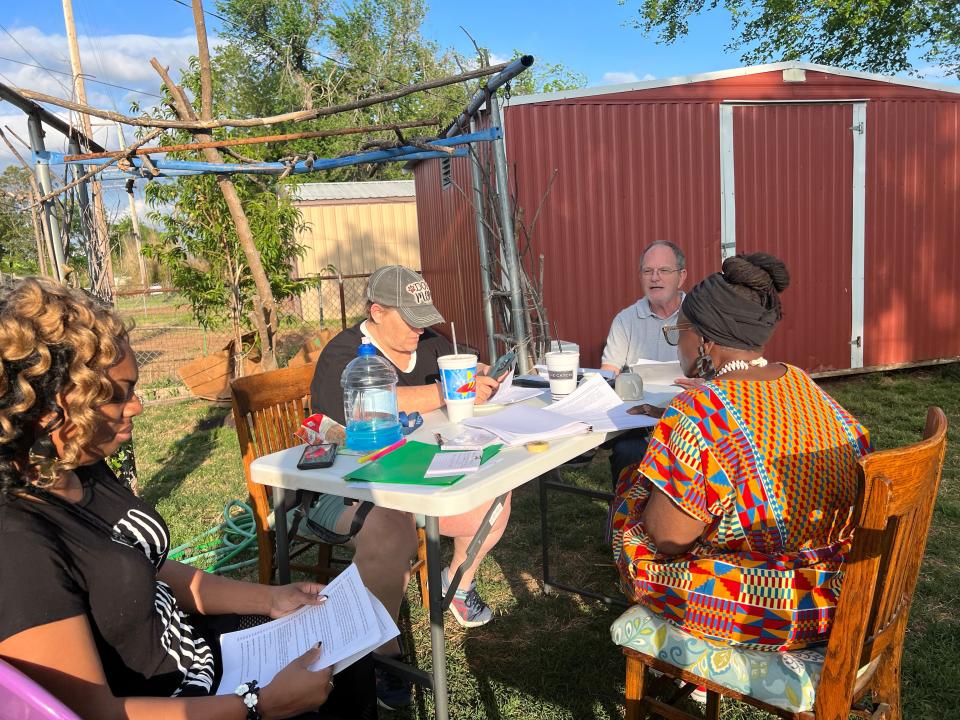Oklahoma theater premieres new play inspired by the history of anti-Black sundown towns
NORMAN — Two years ago, the Norman City Council issued a proclamation formally apologizing for the community's history as an anti-Black "sundown town."
Now, a Norman community theater is delving into that shameful history with the world-premiere play "ANNA When the Sun Goes Down."
Researched, written and directed by esteemed Oklahoma storyteller DWe Williams, the new play about a family's sundown town experience will debut at 8 p.m. Thursday-Saturday, June 9-11, at the Studio of the Sooner Theatre in downtown Norman.
Admission is free, but seating is limited and on a first-come, first-served basis.
"It's so past time to do this. ... With everything that's happening in the world, it's gotten to a point that there's no ignoring it anymore. This is a story that needs to be told: It's a story that's local and yet more than local. We couldn't not tell it," said Sheryl Martin, artistic executive director of Namron Players Theatre, which is producing the new play.
"There is no way that I could have written this play ... but DWe has the perspective I lack to write a story like this. And we're so fortunate to work with an artist of her talent and stature on this project."

Best known for creating Afrocentric works through her Rhythmically Speaking theater company, Williams is the first guest playwright in residence that Namron Players Theatre has taken on to craft one of its community-based theatrical works.
"I have a history of doing historical pieces: Probably more than half of the shows that I've written have been in relationship to Oklahoma African American history, some of which little is known about. So, these are all research-based projects, and they are all original scripts," Williams said, adding that she had worked with some of the Namron Players in the past.
"The topic itself can be divisive. People have opinions on what's valuable to go back and tell and 'why are you dealing with this old, old stuff?' ... There are areas of town where African Americans will still say, 'You don't need to be driving through there at night.' That's kind of the essence of what sundowning is."

What are sundown towns?
As the name implies, "sundown towns" were towns where people of color were not welcome after dark, under threat of racist violence, including lynching. Although certainly not exclusively an Oklahoma phenomenon, between the Land Run of 1889 and the Civil Rights Era of the 1960s — even beyond — some towns across the Sooner State either drove out Black residents or took steps to forbid African Americans from settling there.
"I think that there were well over 50 or more (in Oklahoma), and then again, because it wasn't so clearly documented — it's just identified by word of mouth and folks telling their stories and their experiences — I think it was much more widespread than we've ever been able to really document," Williams said.
"For example, when I did the show 'Sitting in With Clara,' about (Oklahoma civil rights activist) Clara Luper, I was just entrenched with the fact that her young brother became ill, and his father took him to Henryetta to the hospital. And they refused to treat him, not because they couldn't, but because they wouldn't, because he was a Black child. And he died. ... That was basically a sundowning kind of experience."
Issued by Norman Mayor Brea Clark and approved by the Norman City Council, Norman's 2020 Sundown Town Apology and Reconciliation Proclamation condemned and apologized for historical sundown practices, including "mob violence, terror, threats, the freezing out of services such as restaurants and motels, and real-estate practices that resulted in the refusal of sale of real-estate and homes to African Americans" and "significant KKK activities sponsored by many influential men in Norman (that) called for no African Americans residing, working, entertaining, or simply being in Norman after dark."
The proclamation, which also renewed the city's commitment to building an inclusive community, was accepted by George Henderson, who, with his wife, Barbara, became the first African American homeowners in Norman in 1967, after he joined the University of Oklahoma faculty.
"I think they're good gestures. Of course, all you can do is to do definitively different and better going forward. That's what people ask of you. I think the challenge and difficulty with African Americans is because we are aware of apologies, but we're also aware of reparations," Williams said.
"In my research, I cannot find one other Oklahoma town who has officially done a proclamation apologizing for having been a sundown town, other than Norman. ... I think they're definitely towns who have changed their practices, and we don't see it in that same kind of blatant sense. But you would look at the mayor of Norman as being a woke white girl who was willing to do a public proclamation and apology for having been a sundown town. Ironically, when the show opens, she has been defeated, so she won't be the mayor ... much longer."

What is the new play about?
The playwright didn't want to give away too much about "ANNA When the Sun Goes Down."
The story centers on a boy named Zephan, who has been raised from infancy by his Grandma Lois after the sudden death of his parents. Much like his late father, Zephan loves nighttime adventures, and his grandmother fears for his safety because the nearest town is a sundown town.
"I don't want them to be prepared for how the story goes. ... In looking at the Oklahoma sundown scene informing this play, I'm telling it always from a first-person perspective, as an African American," Williams said. "My training prepares me to go in and look at the story from both perspectives and then to look at what we call universals ... that even in our differences are things that we can have in common."
The play stars Oklahoma performers Andrea Zolicoffer, Sandy Oliver and Terry Veal, who have all worked with Williams through her Rhythmically Speaking company, along with the playwright's grandson and granddaughter, Jordon Williams and Giselle Williams. Veal also has appeared in previous Namron Players productions.

How is the play's topic still relevant?
"ANNA When the Sun Goes Down" is the fourth installment in Namron Players Theatre's Oklahoma StoryWorks series, which develops new plays from the stories of Norman and Oklahoma denizens. Those stories are drawn from a playwright's interviews with various residents.
"This is not so much about the past. It's something that if we continue to just say, 'Oh, yeah, that happened, and now it's over,' nothing is going to change," said Martin, the company's executive artistic director.
"Obviously, we can't fix everything. But this is our way of saying, 'Yeah, we see it, and we know it needs to be addressed.' We're going to try and make it so you can't hide from it anymore, so you can't close your eyes and pretend that it's over with."
Developing the play has been a 10-month commitment for Williams.
"We're in a time where African American parents are telling their sons and giving them specific instructions on 'When you're stopped (by police), put your hands on the steering wheel, just say "yes, sir," do what it takes to get home safely. Inform the officer of what you're doing: "I'm going to get my driver's license, it's in my wallet, it's in my back pocket. My registration is in the glove compartment." So, you tell them what you're doing prior to making any moves, because you're trying to be safe,'" Williams said.
"So, just as secretive as sundowning was back in the late 1800s, it, in its essence, still exists."
'ANNA When the Sun Goes Down'
When: 8 p.m. June 9-11.
Where: Studio of the Sooner Theatre, 110 E Main in downtown Norman.
Admission: Free, but seating is limited and on a first-come, first-served basis.
Information: https://www.namronplayerstheatre.org.
This article originally appeared on Oklahoman: Oklahoma theater stages play about the history of racist sundown towns

